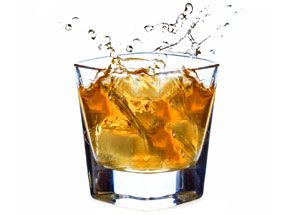Article
HIV-positive Men More Sensitive to Alcohol
Author(s):
A study published in AIDS and Behavior claimed men with HIV feel the effects of alcohol at smaller amounts.

A study published in AIDS and Behavior claimed men with HIV feel the effects of alcohol at smaller amounts.
“Alcohol makes it more likely you’re going to get HIV due to risky sexual behavior,” Amy Justice, professor of medicine and public health at Yale University said in a statement. “Once people have HIV, alcohol makes it less likely they will take their antiretroviral medications. Drinking, like HIV infection, also harms the liver and immune system.”
A team of researchers at Yale University and VA Pittsburgh Healthcare System looked at the data of infected (n=1478) and uninfected (n=1170) men who were part of a study on aging in veterans and compared the amount of drinks it took for them to “feel a buzz or high.”
While the average amount of drinks to feel a buzz was 3.1 (1.7), males with HIV felt the effects of alcohol with a quarter less of a drink than the healthy patients that were studied (coef=-14 for VL <500; -34 for VL ≥ 500; p ≤ .05).
However, the investigators found men who knew they were HIV-positive and had a detectable viral load (VL) also felt alcohol’s effects at a smaller amount than males that had undiagnosed or suppressed HIV.
“All else equal, people who have HIV infection have a lower tolerance for alcohol than similar people without HIV infection,” Justice explained. However, she also explained their analysis did not consider whether people with HIV are more susceptible to alcohol, or if it their condition caused accelerated blood absorption despite drinking the same number of drinks.
While the investigators claimed that there is no threshold of safe alcohol use for HIV patients, physicians should warn and counsel HIV-infected patients of these effects.
“Future research on the relationship between alcohol and HIV should consider the role of VL suppression,” the authors reported.


